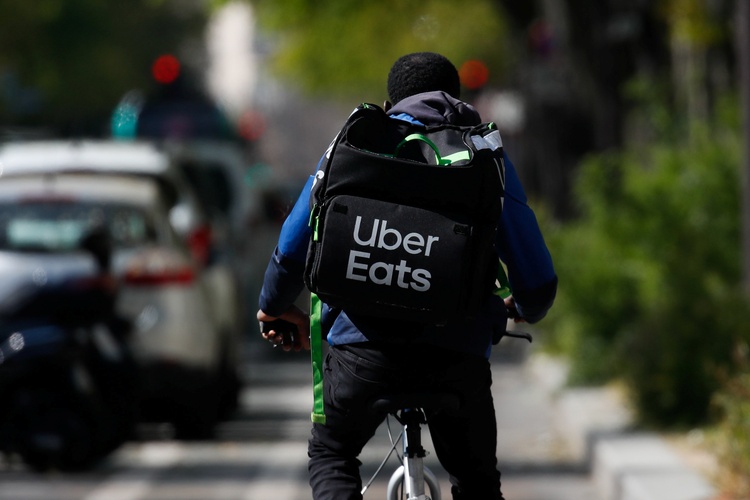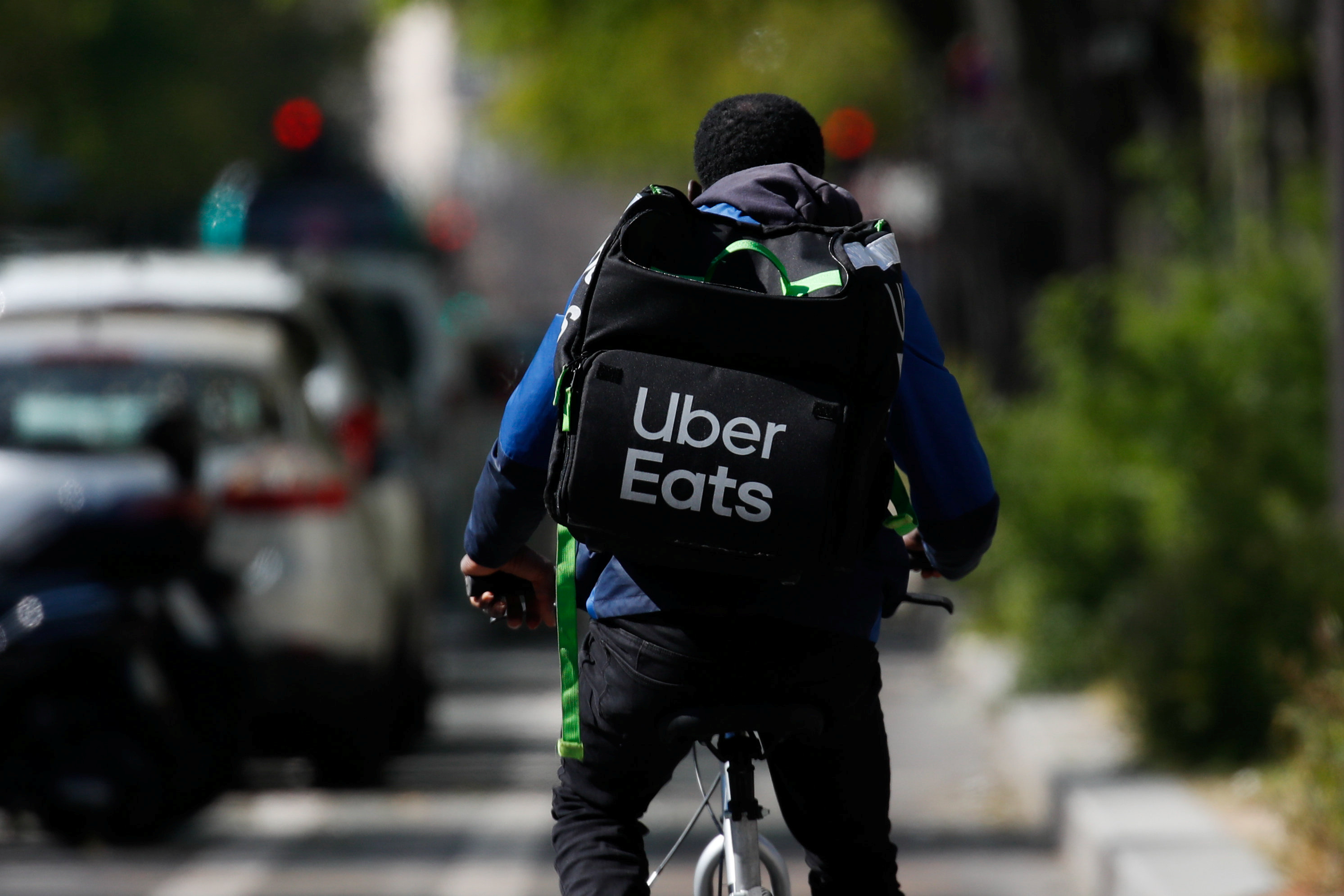Milan public prosecutor Paolo Storari on Monday closed an investigation into charges of exploitation of riders used for food delivery and tax crimes against employees of Uber Italy.
The inquiry on May 29 led the court to issue the first ever measure of its kind against a delivery service when it put Uber Italy, a branch of the US corporation, under special administration.
The judge who placed Uber Italy into temporary receivership in May highlighted the “strong social isolation in which these migrant workers live”, which he said was seen as “an opportunity to recruit workers at outrageously low cost, given their tendency to do anything to survive, and who are exploited and discriminated against by unscrupulous employers”.
Milan prosecutors on Monday informed 10 people that they had concluded an investigation into exploitation and tax felonies regarding the Italian branch of the Uber Eats delivery service.
Such notification is usually given before prosecutors make indictment requests.
Those under investigation include the senior operations manager of Uber Italy, Gloria Bresciani.
According to the notification, the investigation found that the riders were allegedly paid just €3 per delivery and “robbed” of their tips, as well as being “punished” when they made small mistakes.
The notification included the transcription of a wiretap in which Bresciani allegedly said to an employee: “Never again say that ‘we have created a system for desperate people’ in front of someone from outside. Even if you think it, you don't air your dirty laundry in public.”
Bresciani was charged alongside Giuseppe and Leonardo Moltini and Danilo Donnini, directors of the intermediary companies FRC and Flash Road City.
The four, the prosecutor wrote in the notification, “employed and recruited riders” through Flash Road City and FRC “and then sent them to work under the Uber group in exploitative conditions”.
According to official documents, they exploited the “state of need” of “asylum seeking migrants” who were living in migrant reception centres and who were from “conflict areas (Mali, Nigeria, Ivory Coast, Gambia, Guinea, Pakistan, Bangladesh) and thus in a condition of extreme vulnerability and social isolation”.
The workers, the documents stated, “were paid €3 per delivery, regardless of the distance travelled”, the weather, or the time of the day or night that they worked.
They were also allegedly “robbed” of tips that customers left voluntarily and “punished” via arbitrary cuts to the agreed wages when they did not abide by all instructions.
The prosecuting officer drew up examples of the pay received for work done to illustrate the “degrading working conditions” and the “oppressive system” under which the riders suffered.
One of the workers, for example, worked 68 hours but earned only €179.50 and had his pay cut by €24.50.
The prosecutor added that the riders were at times “arbitrarily removed from the Uber work circuit through having their account blocked”.
Uber Italy, under investigation for administrative responsibility, will have to appear in court on October 22 at the Preventative Measures Section under Fabio Roia.
The company denies exploiting the riders, and in a statement released on Monday said: “In recent months we have worked closely with the judicial authorities to revise and reinforce our service. We will continue to collaborate with the authorities and to fight all forms of illegal intermediation.”
Riders from the Uber Eats service have continued to work but since June 1, a special administrator had been supervising the “management models” of the Italian branch of the American group and will be submitting a report to the judges ahead of a decision on whether or not the receivership should continue.
Meanwhile, after the Uber case and thanks to dialogue activated by the prefect’s office in recent weeks, Italian delivery associations and unions reached an agreement on protocol to avoid rider exploitation in the future.
With ANSA












